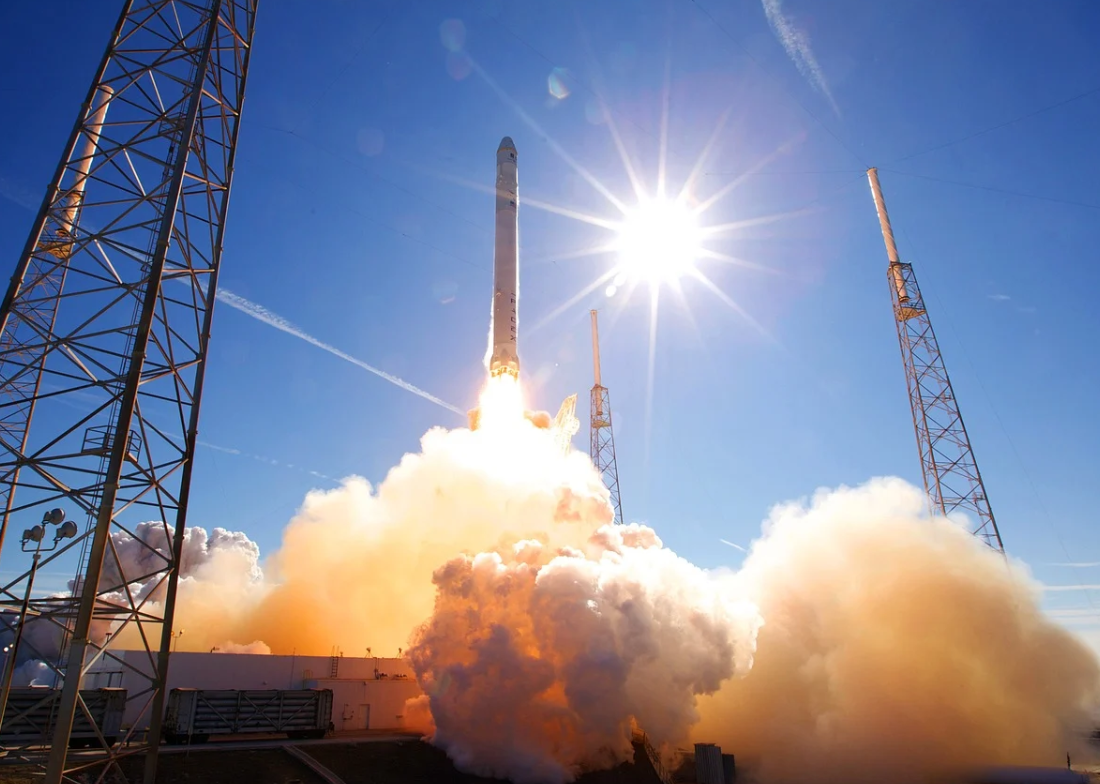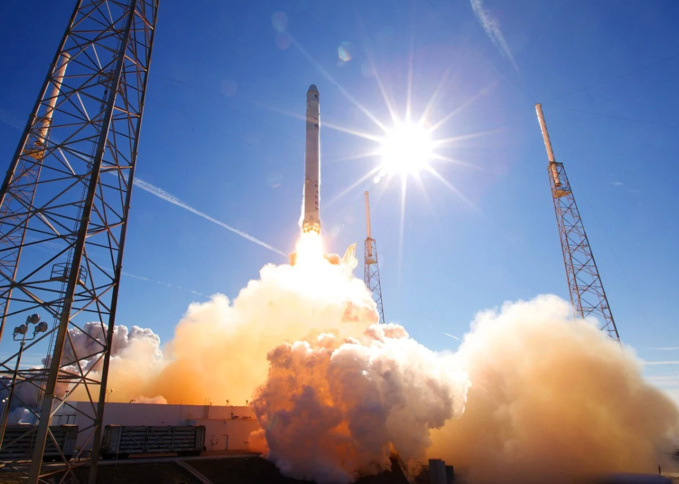The success of Elon Musk, owner of a private company sending people to the ISS “could be the beginning of the second space age” in space exploration, says Luke Ward, investment manager of the British company Baillie Gifford, which manages and/or advises on investments of about $ 260 billion, including in such private space companies as SpaceX, Spire Global and Reaction Engines. He notes that a few years ago, “frustrated by the insufficient progress in space exploration”, such large entrepreneurs as Elon Musk, Jeff Bezos, Richard Branson and Microsoft co-founder Paul Allen began to invest in this area. According to him, largely thanks to the efforts of private capital, the cost of launches into space has significantly decreased - from $ 10 thousand per 1 kg at the end of the 20th century to $ 1 thousand per 1 kg now.
Mr. Ward believes that the next generation of private spacecraft is able to reduce this cost to $ 50 per 1 kg. This will help private companies develop a wide range of industries: from telecommunications and 3D printing to oceanography.
In March, SpaceX launched into orbit additional 60 satellites of the Starlink mission, designed to provide fast satellite Internet access to hard-to-reach areas of the Earth or areas that still lack cable or wireless fast Internet.
American observers also expect a revival among investors after the success of Elon Musk. At the same time, they note that there are still not very many public companies among private space companies, that is, companies in which you can invest by buying shares. Since May 30, when the launch of Crew Dragon was launched, shares of many private public space companies have risen.
It is noteworthy that the growth of their quotes occurred against the background of continuing volatility due to the slowdown in the global economy caused by the pandemic of the coronavirus COVID-19.
For example, the shares of the aerospace corporation Lockheed Martin grew by 5%, its competitor Northrop Grumman - by 4%, Maxar Technologies, a company developing various technologies for satellites - by 9%, shares of rocket engine manufacturer Aerojet Rocketdyne - by 6 %
Back in July last year, Morgan Stanley investment bank said that by 2040, profits generated by space companies could reach $ 1 trillion. However, already at the end of 2019, the private space industry attracted a record volume of investments. According to estimates by the Space Ventures US venture capital fund, private space companies raised $ 5.8 billion over 198 transactions over the past year. This exceeded the previous record of $ 5.1 billion, set in 2017.
However, private investment in space is booming not only in the West. Last week, the French consulting company Euroconsult released a report on the state of private space investment in China. After the PRC liberalized private investment in space in 2014, Chinese commercial space companies (satellite navigation, satellite broadcasting, weather satellites, component manufacturing, software, etc.) attracted $ 900 million from private investors alone. Given approximately the same amount from the state, the total investment attracted by Chinese commercial space companies amounted to $ 1.8 billion.
source: fool.com
Mr. Ward believes that the next generation of private spacecraft is able to reduce this cost to $ 50 per 1 kg. This will help private companies develop a wide range of industries: from telecommunications and 3D printing to oceanography.
In March, SpaceX launched into orbit additional 60 satellites of the Starlink mission, designed to provide fast satellite Internet access to hard-to-reach areas of the Earth or areas that still lack cable or wireless fast Internet.
American observers also expect a revival among investors after the success of Elon Musk. At the same time, they note that there are still not very many public companies among private space companies, that is, companies in which you can invest by buying shares. Since May 30, when the launch of Crew Dragon was launched, shares of many private public space companies have risen.
It is noteworthy that the growth of their quotes occurred against the background of continuing volatility due to the slowdown in the global economy caused by the pandemic of the coronavirus COVID-19.
For example, the shares of the aerospace corporation Lockheed Martin grew by 5%, its competitor Northrop Grumman - by 4%, Maxar Technologies, a company developing various technologies for satellites - by 9%, shares of rocket engine manufacturer Aerojet Rocketdyne - by 6 %
Back in July last year, Morgan Stanley investment bank said that by 2040, profits generated by space companies could reach $ 1 trillion. However, already at the end of 2019, the private space industry attracted a record volume of investments. According to estimates by the Space Ventures US venture capital fund, private space companies raised $ 5.8 billion over 198 transactions over the past year. This exceeded the previous record of $ 5.1 billion, set in 2017.
However, private investment in space is booming not only in the West. Last week, the French consulting company Euroconsult released a report on the state of private space investment in China. After the PRC liberalized private investment in space in 2014, Chinese commercial space companies (satellite navigation, satellite broadcasting, weather satellites, component manufacturing, software, etc.) attracted $ 900 million from private investors alone. Given approximately the same amount from the state, the total investment attracted by Chinese commercial space companies amounted to $ 1.8 billion.
source: fool.com



















